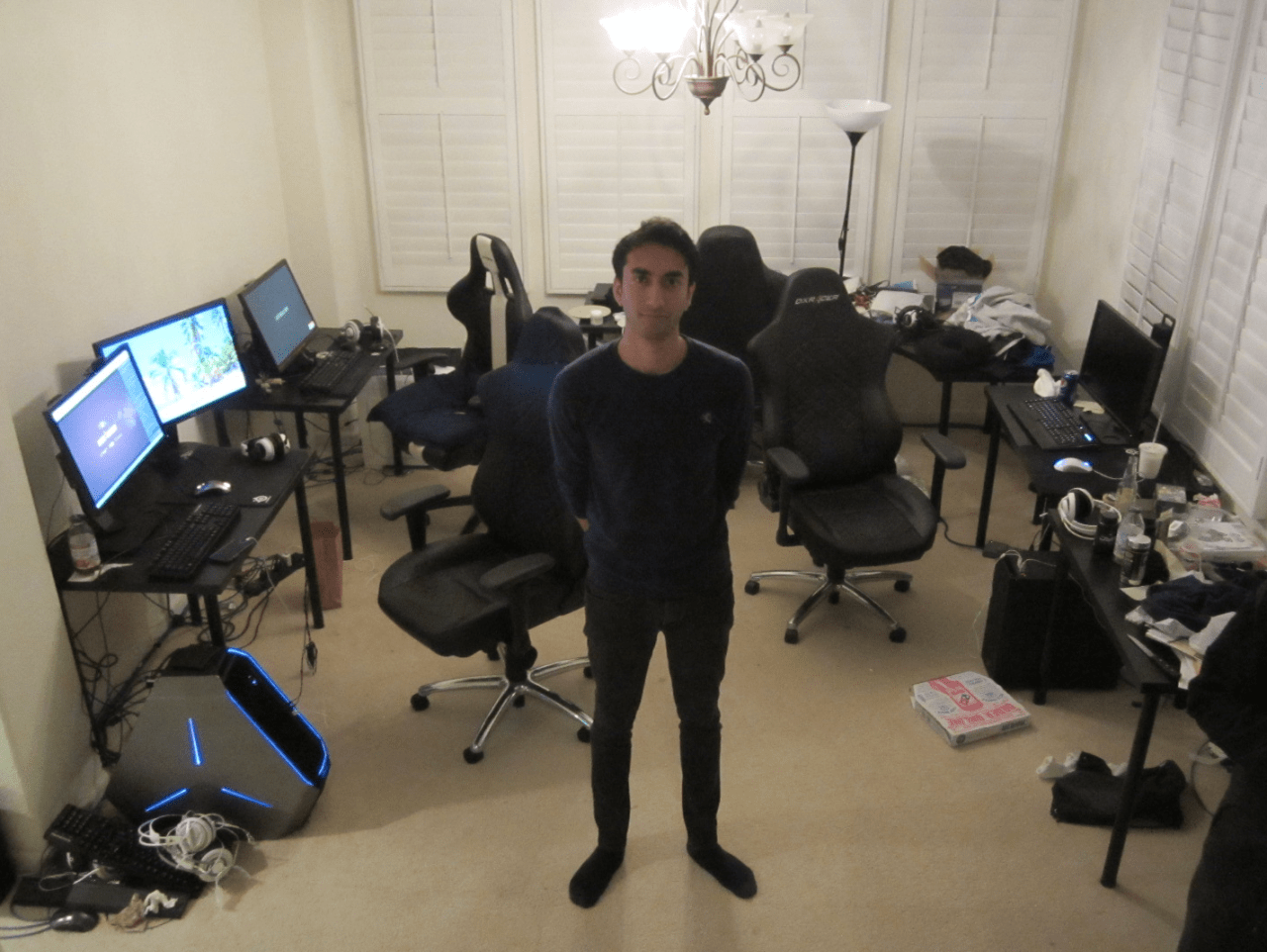Advertisement
eSports Comes Of Age: Filling Arenas, Paying Millions
ResumeLast August's championship match for the video game "DOTA 2" was contested at Seattle's KeyArena — where the SuperSonics used to play. The 17,000 tickets for the event sold out in 10 minutes. And 20 million people watched online. That’s the average viewership of the NBA Finals.
"DOTA 2" is a 5-on-5 game, like basketball but set in a fantasy realm. This isn’t Mario running around collecting gold coins. The goal is to destroy the other team’s virtual base.
"We're in the center," recalls Saahil Arora, "and then they can see us and there's a big screen at the top and people can watch from there."
Arora helped his team Evil Geniuses win the $6.5 million grand prize at that tournament.
"No big lifestyle changes here," he says. "I was thinking about getting a pretty nice car, but I haven’t followed through with that."
I started playing ‘Doom' first with my brothers. Then we went online and I just found that I never lost.
Dennis Fong, eSports pioneer
Last year, Arora made more money in video game tournaments than all but five players have made over the course of their entire careers. But just 20 years ago, video games were something people only played for fun.
The Birth Of eSports
"Back in the '90s," Dennis Fong says, "I don't think there was anything even called professional gaming, so I guess that would make me the first."
At 38, Fong is one of the old sages of professional gaming. He won championships in the mid-'90s playing first-person-shooters.
"I started playing 'Doom' first with my brothers. Then we went online and I just found that I never lost."
Back then, tournaments were one-offs. Dennis Fong’s first real tournament was held by Microsoft in Redmond, Washington. They called it Deathmatch ‘95.
"We had hundreds of people in the audience cheering," Fong says. "Stage setup. You know, the whole nine. Certainly not the level that we're at now, but that was the early days."
At the time, Fong was still living with his parents in the Bay Area. He was only 16.
"I was the favorite going in and I ended up winning it. I think at that point it was the biggest prize I’d ever seen — which is about $10,000 worth of stuff."
Fong soon turned gaming into an actual job. But he didn't do it all on his own. A reporter knocked on his door. He had made an appointment but...
"I said, 'Man I just woke up — I forgot. Sorry! Can you just come back in an hour? After I’ve gotten ready?'”
The morning that story was published on the front page of The Wall Street Journal could be considered the moment eSports was born.
"I started getting calls from people — companies, corporations saying, ‘Hey can you come consult,’ ‘Hey can we sponsor you,’ blah, blah, blah. And within a year or two I was making six figures," Fong says.

What makes an athlete a professional? Paid competitions? Newspaper coverage? Sponsorship deals? Fong had it all. He had even hired a friend as his agent.
"Pure happenstance," Fong says, "I certainly didn't dream to be a pro gamer. There was no such thing."
Free Rent — And Much More
That was in 1996. Fifteen years later, Saahil Arora wasn’t exactly planning on a career in eSports either.
"When I was in college," he says, "I didn't enjoy anything I was doing over there."
Arora was at the University of Wisconsin-Madison.
"I just thought while I can do this I might as well try it while I still can," he says.
He’s 27 now. Arora doesn’t live at home with his parents. He lives in the Evil Geniuses' team house in Alameda, California. The house is rented by the company that owns the team. It’s in a fancy, quiet neighborhood. The team’s player-manager Charlie Yang shows me around.
"So is this like a living room?" I ask. "The work room? The training room?"
"Right," he says, "the training room."
So what in the past 20 years has changed so Arora gets free rent, while Fong had to live with his parents? The Monster Energy fridge in the living room is a clue.
"That's one of our sponsors," Yang explains.
Evil Geniuses is also sponsored by T-Mobile, Papa John’s and SanDisk. You could see the logos on Arora’s jersey during his "DOTA 2" victory speech.
These days, games are often designed from the start with competitions, and now even spectators, in mind. The website Twitch — where people go to watch others playing video games — gets over 100 million viewers a month. Twitch actually owns Evil Geniuses.
I wonder if Arora looks up to Dennis Fong, like a young basketball player might look up to Michael Jordan.
"So, another person I talked to was a guy named Dennis Fong," I say, "Do you know who that is?
"I have no idea," Arora says.
No one in this industry is looking back. The economics, and even the games themselves, are changing too quickly. Dennis Fong was the best in the world at "Quake 2," but when "Quake 3" came out, he couldn’t keep up. What Fong did instead might be a good choice for Arora when it’s time for him to retire.
"Some of biggest competitions, some of the biggest eSports organizations in the world are run by folks from my era," Fong says.
Like a long line of retired athletes Fong became a businessman. So, will Arora be like Michael Jordan? Maybe drop seven figures on a top-tier eSports franchise?
"I try not to think about that," he says. "I'm just focusing on playing at the moment."
Given how much money is now pumping through the industry, when Arora puts down the controller he could choose to never work again. He’ll already be sitting on a very big pile of gold coins.
This segment aired on January 23, 2016.

